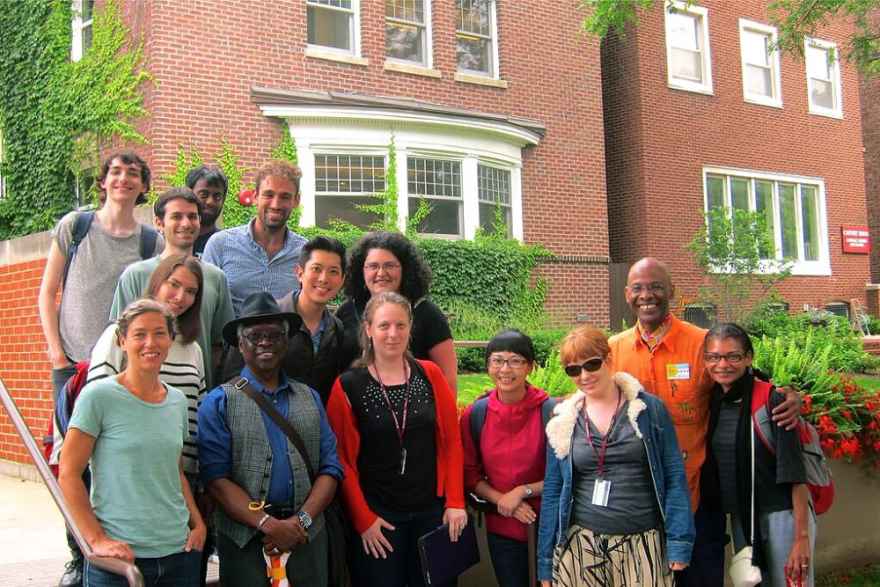UChicago Hosts ‘All-Star Team of Linguistics’ at 2015 Linguistic Summer Institute

The following appeared in UChicago News on 13 August 2015.
Some 600 linguists and students from around the world came together last month when the University of Chicago hosted the 2015 Linguistic Summer Institute—a gathering that organizer Becky Fabrizio, AM’15, likened to “the all-star team of linguistics.”
The institute consisted of four weeks of intensive classes in addition to workshops, lectures and networking. This year, more than 100 courses were offered, encompassing various levels and subfields of the discipline. Instructors included 17 UChicago faculty members drawn not only from the linguistics department but also related disciplines like psychology and anthropology. UChicago graduate and undergraduate students made up a sizable portion of the institute’s student body, as well as its volunteer staff.
UChicago linguists Alan C. L. Yu and Karlos Arregi served as this year’s directors. They sought to develop programming that highlighted the strengths and goals of their department: for example, Yu said the focus on language-specific courses was unique to this year’s institute. Courses including “The Structure of Hittite” and “Topics in Bantu Syntax” supplemented more broad-based offerings like “Experimental Pragmatics” and “Language and the Body.”
“We didn’t just go general and do only big topics—we also took care of people who were interested in particular languages and language families,” explained Yu, professor in linguistics and the College. “We are interested in a language as a language rather than just data points.”
This emphasis reflects the priorities of UChicago linguists more generally. “Doing detailed work on a particular language is something that characterizes our department,” explained Arregi, associate professor in linguistics and the College.
The institute’s 2015 theme, "Linguistic Theory in a World of Big Data," was chosen to showcase the unique qualities of University of Chicago linguistics. Yu explained that the department is “very good at marrying empirical studies and theory,” as well as navigating “the tension between how much data you can have and how much you can explain.”
But while the University’s approach to linguistics helped shape many aspects of this year’s institute, participants also were exposed to viewpoints from scholars around the world. “Students and faculty who don’t normally get to talk to one another got to exchange ideas,” said Fabrizio.
Lenore Grenoble, who is internationally renowned for her work on endangered languages, taught a field methods class at the institute and described the community of scholars who gathered as “linguistic heaven.”
“There’s this huge synergy going on and just so many people interested in linguistics all together talking about questions,” said Grenoble, the John Matthews Manly Distinguished Service Professor in Linguistics. “It’s like a big linguistic think tank.”
The four weeks of intense focus were demanding for participants, but Grenoble described it as “a good exhaustion.”
And, of course, the institute wasn’t all work. Participants found time to socialize and enjoy the musical stylings of an all-linguist band, Dead Tongues.
While faculty members gave up weeks of potential research time to teach at the institute, Grenoble said the work was “a service to the profession.”
“One thing I like about my field and about my colleagues is we’re really dedicated to promoting our field, and the way you do that is by training younger people,” Grenoble explained. “The younger people who are coming (to the institute) are the future.”
The Linguistic Society of America sponsors biennial institutes at universities around the country. UChicago also hosted institutes in the 1950s. The program is open to anyone engaged in the field of linguistics, from tenured faculty to high school students.
